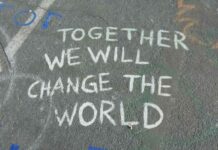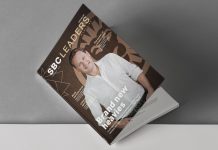M&C Saatchi’s Kate Bosomworth proved to be a breath of fresh air at last week’s GambleAware Conference – and gave those in attendance, including the leaders of some of the UK’s biggest betting companies, pause for thought
LAST week, at the King’s Fund, just off London’s Cavendish Square, the annual GambleAware Conference welcomed three keynote speakers.
The first was Mims Davies, minister for sport and civil society, who firmly toed the party line and warned of a mandatory levy on operators, should responsible gambling measures not get the attention the government believe the matter merits.
Next up was Neil McArthur, chief executive of the Gambling Commission, who riffed on the conference theme of diversity. Third to speak was Kate Bosomworth who, since January, has been chief marketing officer at the London office of ad agency M&C Saatchi.

Bosomworth came to the role via selling beer in Scotland and a landmark tenure at Sport England, where she led the team behind the This Girl Can campaign, which sought to engage more women in sport. It succeeded.
Later, Bosomworth would reference the important of “key moments”. For her, This Girl Can was certainly one such – and its themes of diversity and inclusivity are exactly why the CMO was invited to address the conference.
Despite the continuing success of the This Girl Can phenomenon, Bosomworth was quick to highlight a handful of highly significant examples of a distinct lack of diversity in sport and beyond. To highlight the point, there was a topical reference to the inaugural winner of the women’s Ballon d’Or, footballer Ada Hegerberg, who – incredibly – was asked by the televised event’s presenter if she “knew how to twerk”.
So, to gambling. “The discussion about diversity in betting and gaming has been rumbling on for more than a decade,” said Bosomworth. She acknowledged diversity where it is to be found in the sector and welcomed the launch of the All-In Diversity project but said that the industry “still looks to be disproportionately male and white”.
The takeaway from Bosomworth’s presentation was that organisational diversity and inclusivity will be reflected in the work that an organisation undertakes. The corollary being that less diverse businesses produce less inclusive work.
“There are still some quite lazy brands around who haven’t got the memo yet,” she said, citing 2017 research that found “women are twice as likely to be shown partially or fully nude in advertising and three times as likely to have a camera show their body parts.
“Diversity is useless without INclusivity… why do so many organisations find this so hard?“
“Men are significantly more likely to be shown as leaders,” said Bosomworth, while “women are significantly more likely than men to be shown in the home – and men are twice as likely to be shown as managers or professionals.
“Diversity is completely useless without inclusivity, the two go hand in hand. So why do so many organisations find this so hard? Subtle bias persists and leads to exclusion. Minority groups try to conform to downplay their differences.
“Think about the last meeting you went to: who wasn’t in the room? Do you think about who isn’t in the room? Who was talking, who was being heard – who wasn’t?”
Bosomworth then referenced the controversial (and subsequently pulled) 2017 Pepsi ad featuring Kendall Jenner, which she called “incredibly insensitive to the Black Lives Matter movement”.
“Someone, or a group, in an ad agency one day thought that this was a really good idea,” said Bosomworth. “My guess is that there were quite a few people who were not in the room that day and whose voices were not heard.
“Future-proofing and sustainability starts with diversity,” she continued. “It makes improvements to your bottom line, it helps better decisions to be made, it enhances our ability to reach our strategic goals and it gives us a better market position.
“These changes become moments when the cultural norm changes permanently, for the better.”
“But you have to let some new people in the room, let them ask different questions. In 2015, This Girl Can happened. It got three million women more active in the space of just two years. It changed how the sector saw women. Authentic and disruptive, we challenged people time and time again. The exciting thing is that these changes become moments when the cultural norm changes permanently, for the better.”
Bosomworth said she had started to see a much more diverse and inclusive approach in other sectors. “We only create great work if our teams are diverse,” she said. “It follows that diversity of thought is more than a creative necessity – it is a business necessity. For all industries and all businesses. We need an industry where people look like us.
“Let’s make sure that when we leave today we remember that diversity is not just ‘a thing’,” concluded Bosomworth. “Beards are a thing, craft beer is a thing, FitBit and counting your steps is a thing. Diversity is not.”
Watch one of Sport England’s inspirational This Girl Can films below:













